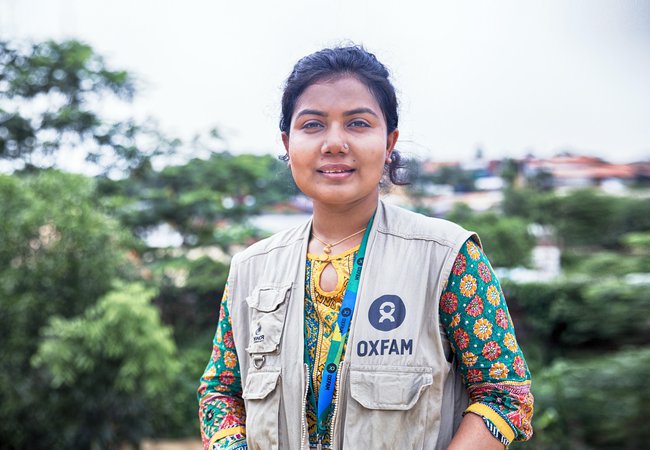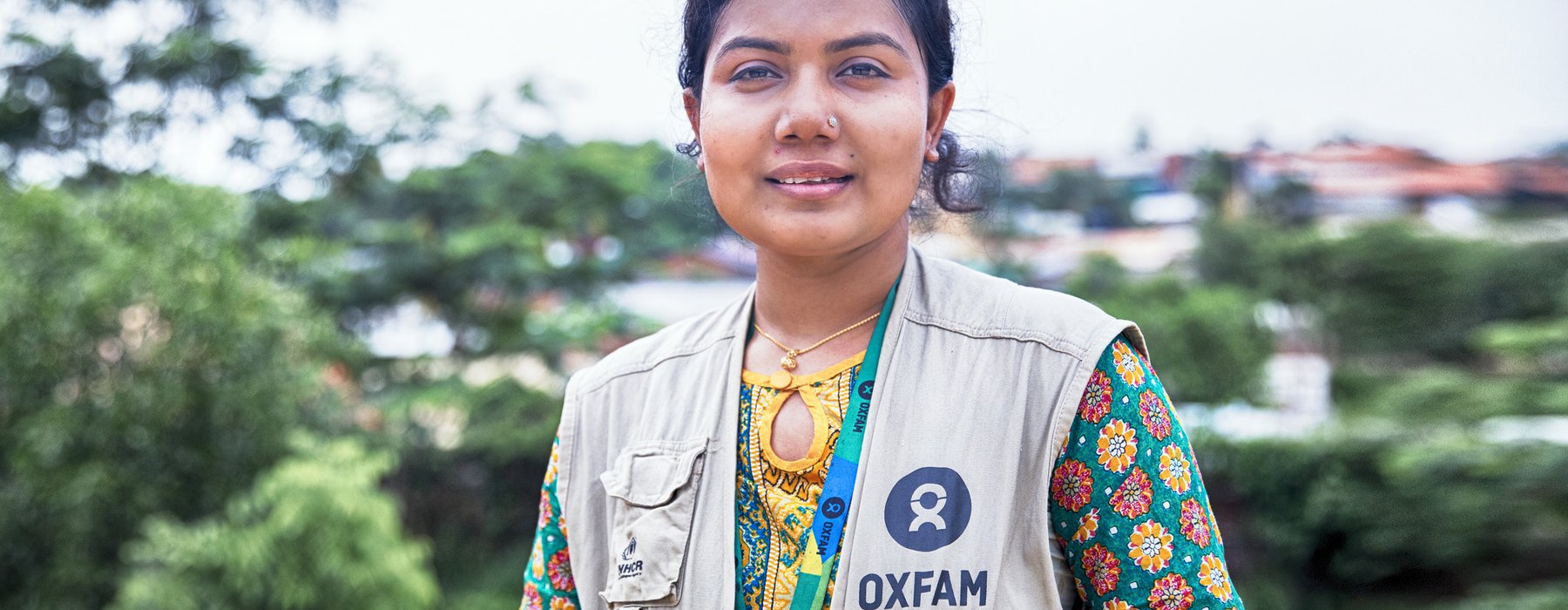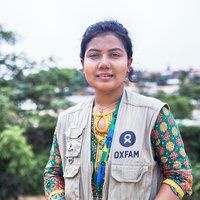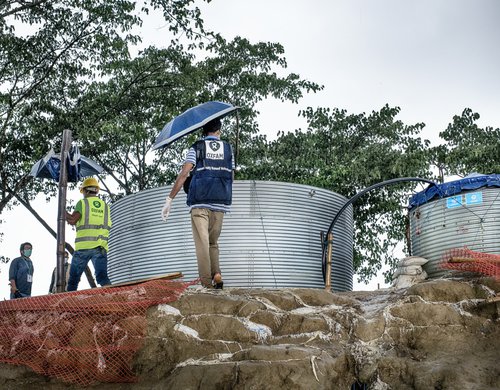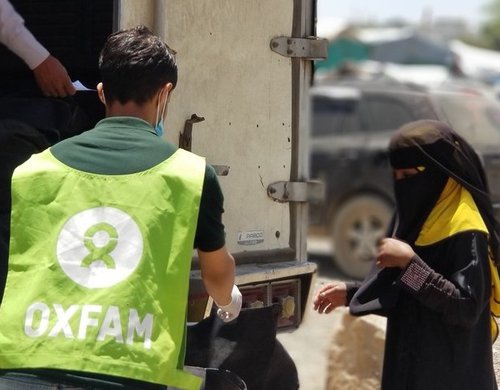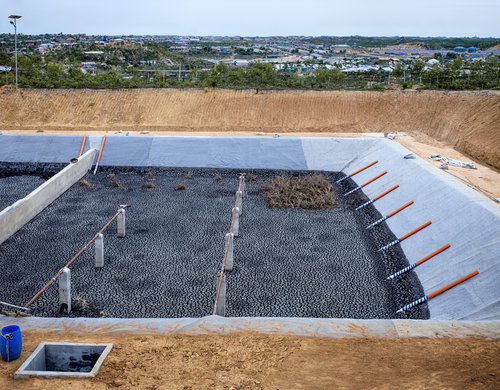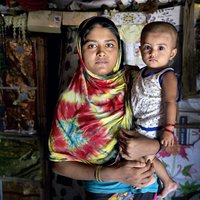We are really working so hard because we know that together we can fight this virus.”
Moury is a Health Promotion Officer in the Rohingya refugee camp in Bangladesh.
Protecting refugees from coronavirus
Moury Rahman is an Oxfam Public Health Promotion Officer in the Rohingya refugee camp in Cox's Bazar, Bangladesh. Oxfam is in the camp, providing water, health and sanitation facilities like hygiene kits and a clean water supply. Here she describes the challenges she encounters in her day-to-day work keeping people safe in the camp.
A crisis on top of a crisis
I'm in Cox's Bazar refugee camp here in Bangladesh. Like many other camps around the world, the threat of coronavirus comes as a crisis on top of a crisis. This refugee camp is really over-populated. It will be really hard to manage if coronavirus hits this camp.
We are working at the household level ensuring that there are handwashing facilities near to the door of the home and also near to the toilet block.
Fabeha Monir/Oxfam
We have heard from others that our people are infected by coronavirus... because of the disease people have to stay away from each other. So, I feel fear. It can spread from one another and people get infected easily.”
Hafeza* and eight members of her family are living in one tent in the camp. (*Name changed to protect identity)
We are providing water, soap and all other basic needs. We are raising mass awareness with the help of community leaders helping us to make sure they understand the importance of staying home.
We are really working so hard because we know that together we can fight this virus.
Fabeha Monir/Oxfam
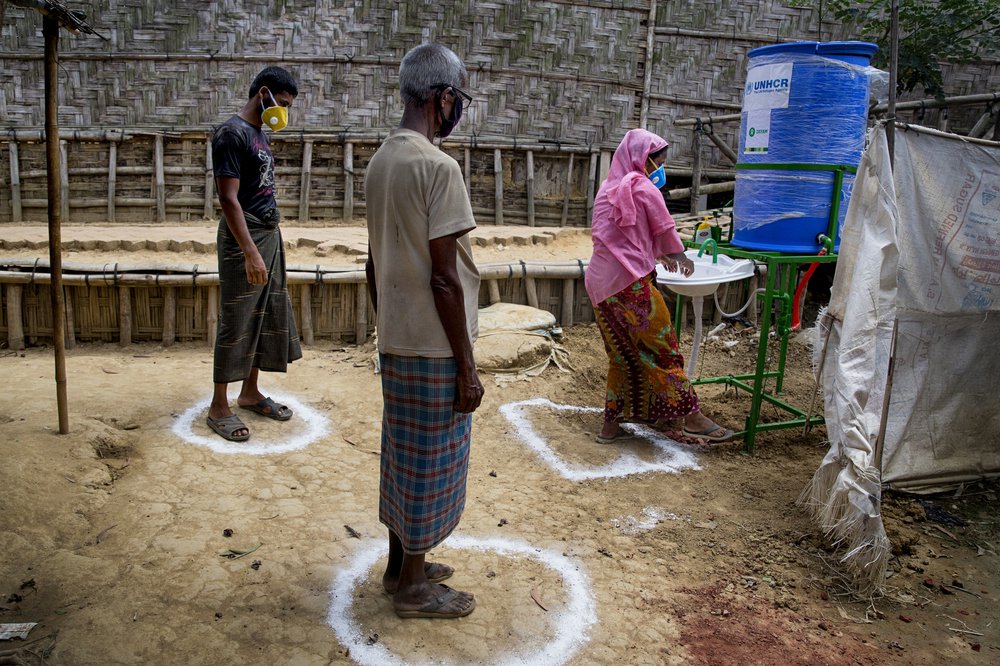
Life in the camp
Whole families are living in flimsy tents, with nowhere to hide from this deadly virus. Imagine social distancing in a place where up to 250 people share just one tap. It's terrifying — but a simple hygiene kit can help save lives. It contains basics: soap, detergent and a bucket. We need to act quickly. So please help families protect against coronavirus.
Video: Trialling a contactless handwashing station
Moury explains how Oxfam is trialling an innovative new contactless handwashing station to help people in Cox's Bazar protect themselves against COVID-19.
Keeping people safe
People are living on unsafe land, the UN warns.
Oxfam has reached at least 266,000 people with water points, toilets, showers and other essentials.
Oxfam aims to reach 300,000 people, keeping them safe with clean, safe water and hygiene facilities.
